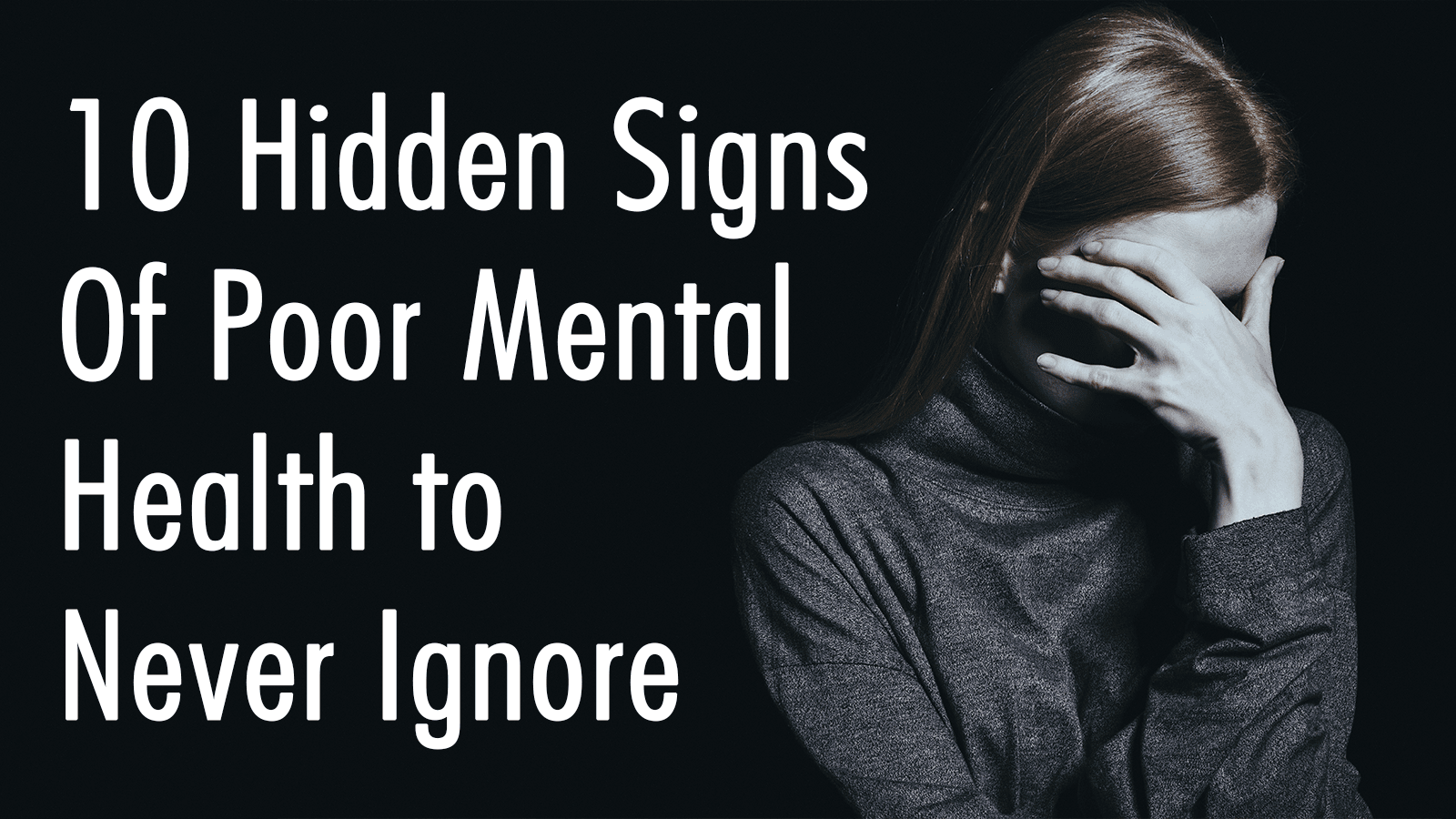Volunteering is the best secret to good mental health. Essentially, doing good for others does good for you. It’s not often talked about, but it’s one of the best ways to improve your psychological well-being.
Things you do that make a positive impact on the world are typically done as acts of selflessness. This means you rarely expect anything in return, and expecting such a thing rather defeats the purpose, anyway. But that doesn’t mean that volunteering doesn’t come with its share of benefits for the kind volunteers!
7 Reasons Why Volunteering Is The Best Kept Secret To Good Mental Health
“Your mental health is just as important as your physical health.” – Unknown
1. Volunteering makes you feel happier
Many of us are familiar with the joyful feeling we get from doing a random act of kindness. As a matter of fact, the act of helping others, even in any small way, can promote happiness overall. Imagine what it’s like for people who volunteer regularly!
Studies have shown results that prove helping others can actually light up reward centers in the brain. And they’re not just any reward centers – they’re the ones associated with things like intimacy and food. This means that the brain gets a totally natural high from volunteering and providing assistance to others!
There is one slight caveat to this great way to promote positive thinking. A job where kindness and caring for others is required cannot produce the same results. Examples of this are in healthcare fields and similar aid work.
This means if you are seeking happiness from helping others, your best bet is to volunteer! Choose to put your effort into work that you personally find important and meaningful. The feeling you get from helping these causes and people in those situations will be phenomenal! No wonder volunteering is the best secret to good mental health!
2. It leads to more oxytocin production
Those who volunteer regularly reportedly actually produce higher oxytocin levels. These spikes are characteristic in these individuals, according to a study in the Hormones and Behavior journal.
- Oxytocin is a neurotransmitter responsible for the regulation of social interaction.
- As such, volunteering can make you better at social interaction and help ease anxiety that some experience with that kind of pressure.
- It might even have positive effects on those with more serious social anxiety, though this requires further research.
- This boost in the neurotransmitter is great for mental health, as having a healthy amount of social activity in one’s life can make you feel happier overall.
- People with depression would do well to take time out occasionally to try and participate in a social event.
Oxytocin is also known for its ability to abate stress levels, which we’ll discuss more in our next point. For now, it’s clear enough to see that the spike in levels of the neurotransmitter does wonders for mental health!
3. It helps with stress management
When you’re stressed, distracting yourself from your problems for a while can help calm you down. That’s why volunteering works so well. You’re pushing your own worries aside temporarily in order to pour time into making an improvement in someone else’s life.
Even if all you’re doing is having a conversation with someone else, or interacting with a pet, you’re still building a meaningful connection with another individual. You are giving them your attention and engaging in social activities, which takes your mind off of stress.
According to a study by Rodlescia Sneed and Sheldon Cohen, published in the Psychology and Aging Journal, there might be a physical reason behind this benefit. Apparently, volunteering is capable of lowering blood pressure.
The study found that those who practice volunteering activities for around 200 hours a year are likely to have lower blood pressure. (Some other studies have placed this number at around 100 hours, too.) This means volunteering is not only the best secret to good mental health – it’s a secret to some aspects of physical health, too!
4. It can provide a sense of purpose
Sometimes, this big world can make you feel like you’re not doing enough. You can feel small, or like your actions don’t matter. You might feel like you’re going nowhere in life, or that there’s no point because you’re just one person – what can you do, anyway?
- When you volunteer, you learn the magic that comes with helping others and being selfless.
- You’ll learn the impact you can have on someone with what seems, to you, like minimal effort.
- You’ll learn that putting smiles on the faces of others is making a positive difference.
- This can provide you with a deeper sense of meaning and purpose.
- Purpose is what motivates and drives many people. If you have a better sense of purpose from volunteering, it can do wonders for your mental health.
5. It decreases the risk of depression
If you’re in a slump, consider volunteering. Not only is it a good distraction, but it can also combat certain destructive habits. This mainly applies to negative thinking and being self-critical to an extreme, transforming these into methods for positive thinking instead.
Helping others can open the mind to seeing that anything is possible. It can, therefore, provide motivation and inspiration to those who feel they are losing hope or feeling sad. If they are capable of making such a change in someone’s life, who’s to say they can’t do so for themselves?
In addition, seeing the hardships that others face can provide you with a sense of the bigger picture of the world. It can take your eyes off yourself and view your struggles in the grand scheme of things. Of course, misery is not a competition, and your feelings are valid. But sometimes, seeing what others go through can make you feel less alone or put your own issues into perspective.
Does this apply to those who already have been diagnosed with a depressive disorder? More research is needed. Still, people who have depression know how annoying it is to hear that all they need is some positive thinking to get over what they experience.
Depression is a complicated condition that has yet to be fully understood. But volunteering and helping others may help manage the symptoms experienced by those with depressive disorders. So if you’re looking for a natural way to combat these symptoms, it’s worth a shot!
6. Volunteering provides better cognitive and brain function
Volunteering helps your brain to work better. When we say volunteering is the best secret to good mental health, it’s because it can directly improve your overall brain function. When your brain is healthy, it can better produce the correct hormones for mood regulation and other similar processes.
Researchers with Johns Hopkins University’s Bloomberg School of Public Health carried out a study that proved this point. The study revealed that adults who spent time volunteering with a youth mentoring program wound up with a visible improvement in cognitive ability.
As a matter of fact, magnetic resonance imaging determined that some regions of the test subjects’ brains – especially key spots that boost cognitive skill – made obvious gains. These areas were mainly ones involved with organization in daily life. There were even changes in the way that the activation patterns in the brain worked.
These results were so prominent that they showed a complete standstill in decreasing function previously present for those with degenerative conditions. For some, volunteering even completely reversed those effects. So it’s really no surprise that volunteering is fantastic for overall mental health!
7. Altruism can be performed everywhere
It’s not just volunteering. Altruistic acts, in general, are known for their positive effects on one’s wellbeing.
Altruism refers to the act of putting the needs of others before your own needs. This can come in many shapes and forms. Because there are so many different ways you can be altruistic, it’s easy to help boost your mental health with small acts of kindness.
So while we certainly urge you to volunteer to help others and yourself, there may be some times when this isn’t possible. You might be ill, feel too exhausted, or have other commitments that week. So here are some other ways you can be altruistic in the meantime:
- Make coffee or tea for a friend, family member, or colleague.
- Give up a seat on public transportation to someone who needs it.
- Mentor someone who needs assistance.
- Be there for someone in their time of need.
- Donate money or items to an organization you believe in.
Altruism is free, and it makes you feel great. And when you’re not free to volunteer, there are plenty of easy ways to do it without draining yourself out. This is one of the reasons altruism is a great way to improve your mental health while having a positive impact on the world!
Final Thoughts On Why Volunteering Is The Best Kept Secret To Good Mental Health
For now, volunteering is the best secret to good mental health – but don’t let it stay that way! The power found in being compassionate and kind speaks for itself. If you’ve been feeling down or struggling with issues in your personal life, focusing on others might just give you the kick you need.
Get involved in local animal shelters and rescue organizations. Help out at a care home or orphanage. Work at a soup kitchen. Participate in environmental efforts. Raise money for a charity. The possibilities are endless!
https://www.youtube.com/watch?v=CU2LlJxEdJ4
















